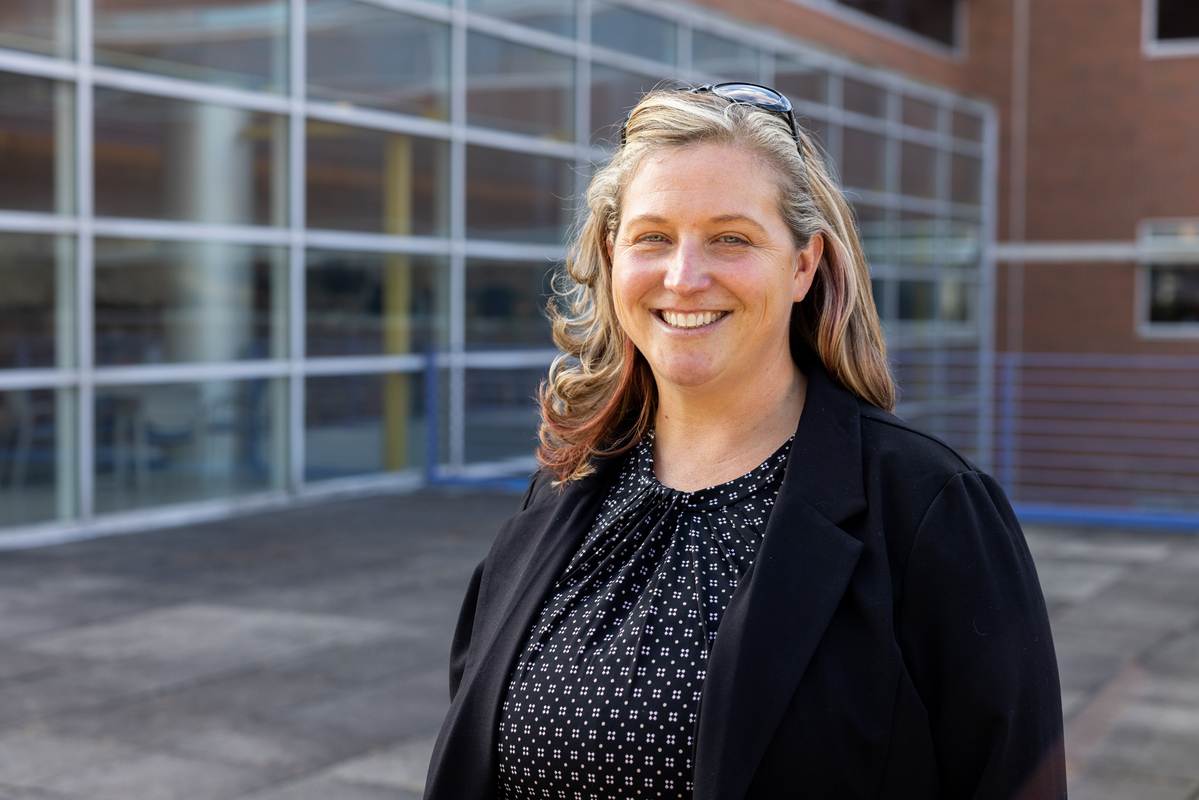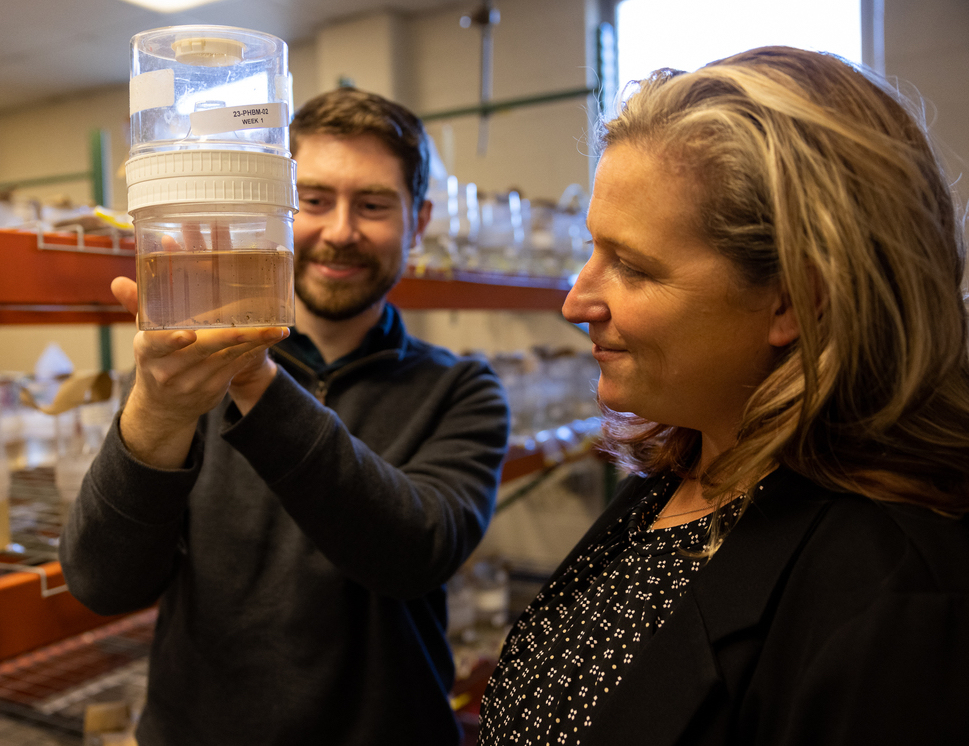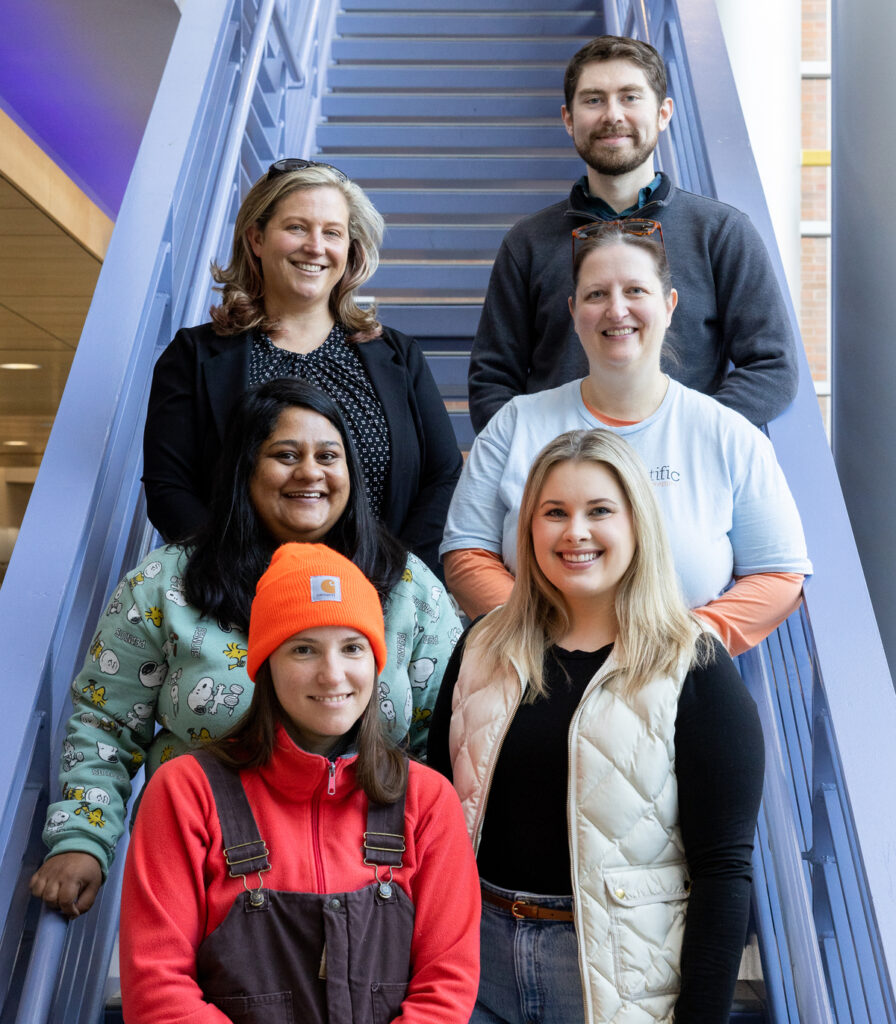
Associate professor of entomology is studying ways to minimize the negative impacts of arthropods on human and animal health
Where are you from, and what led you to the UT Institute of Agriculture?
I grew up in Southern California, but moved to Kentucky when I was 12; so, I consider myself from both places. When I saw the advertisement for an academic position at UTIA, I was a post doc at University of California, Davis. At the time, I had minimal interest in academia (I wanted to be a government scientist), but I kept learning more about the mosquitoes, ticks, flies, and their diseases in the area. When my husband found out that the position was in Knoxville, he reviewed my job application (it was the first item he ever reviewed of mine). We were both excited to move to Knoxville.
What is your main research focus, and why it is important?
We focus on vectors and vector-borne pathogens; specifically, problems caused by mosquitoes, ticks, and flies. Typically, when I show up to a new case site it is because something serious has happened (e.g., child sick from La Crosse virus neuroinvasive disease, farmer needing help because cows are covered in Asian longhorned ticks). This research is critically important because these vectors directly impact health and welfare, indirectly cause disease, and disproportionally affect people without resources. Currently, vector control is dominated by insecticide/chemical use when environmental management and data-driven decisions can help create a healthier and sustainable environment. This is what we try to do in the lab, we try to minimize the negative outcomes caused by arthropods.

What got you interested in entomology?
The news. I watched and read a lot of health/science news because I always wanted to know what was happening. I was in college when West Nile virus was accidentally introduced to the US, reporters were describing that mosquitoes were killing birds at the Brooklyn Zoo and people were getting seriously sick. I saw the One Health connection. Around the same time, the equine industry in Kentucky was being decimated by foal abortions. The connection of eastern tent caterpillars causing Mare Reproductive Loss Syndrome and mosquitoes causing West Nile virus was fascinating. I wanted to learn more and realized that if these new events happened, that there would be more similar events that I could study. I wanted to help people and animals, and becoming a medical and veterinary entomologist made sense.
What is your favorite part of your job?
The people who are a part of our medical and veterinary entomology team. We are a small but mighty group with a drive to make a difference. The students in the lab push me to find answers and help make me a better scientist. I love it when they come to my office with results or graphs, with new papers that I missed or forgot about, and with ideas that can help the community. I enjoy watching them give presentations and interact with other scientists at conferences and meetings. At a recent conference, I saw two lab alumni at a meeting, and it was wonderful to catch up with them and hear about their new jobs.

Which of your accomplishments brings you the most joy and personal satisfaction?
Around the end of 2019 I decided that I would not do anything if it did not bring me joy or lead to happiness. So right now, I love all of it. The emails from scientists thanking me for helping them get their manuscripts published. Undergraduate and graduate students in the lab sharing their work with me. Rebecca is working hard to understand tick ecology in the southeast, Katy is trying to help producers start to think about pest management without chemicals, and Corey is trying to change science/health policy for La Crosse virus management. I love our MEGA:BITESS program and hearing middle/high school students talk about mosquitoes, seeing them test hypotheses, and watching them present their findings. These students and their educators are learning science while giving back to their community; it’s awesome that I get to be a part of it.
Can you share any updates on your team’s work involving La Crosse virus?
Dr. Corey Day, graduated December 2023, has made significant updates in this area. For years we knew La Crosse virus was in Eastern Tennessee, but the community has not been made aware of it. Unfortunately, this virus is neglected and funding for it is rare because there are so few cases (~80 year), but of those cases most occur in a small area of east Tennessee. The MEGA:BITES program now has educators teaching their students about entomology and the mosquito-borne virus, contributing to surveillance and testing solutions, which lead to an increased awareness. Additionally, our partnerships with the CDC, Tennessee Department of Health, and North Carolina Department of Health are helping us explain the temporal and spatial patterns of this disease. Of interest, this disease does not spread or move like West Nile virus, rather it gets in an area and persists. Now that we know where it is, we can identify ways to prevent, detect, and control it.
What do you like to do outside of work and/or what is a fun fact about yourself that your colleagues and students wouldn’t know?
Probably five years ago, my family and I started a Yes Day, which my kid named Super Fun Love Your Family Weekend. Each of us identifies 2-3 things we want to do over the weekend, and everyone must do it and nobody is allowed to complain. My kid and I always choose fun things (e.g., hike, canoe, baseball game with fireworks) and my husband always chooses chores (e.g., wash cars, weeding). It’s become a family priority and something we look forward to every year.
